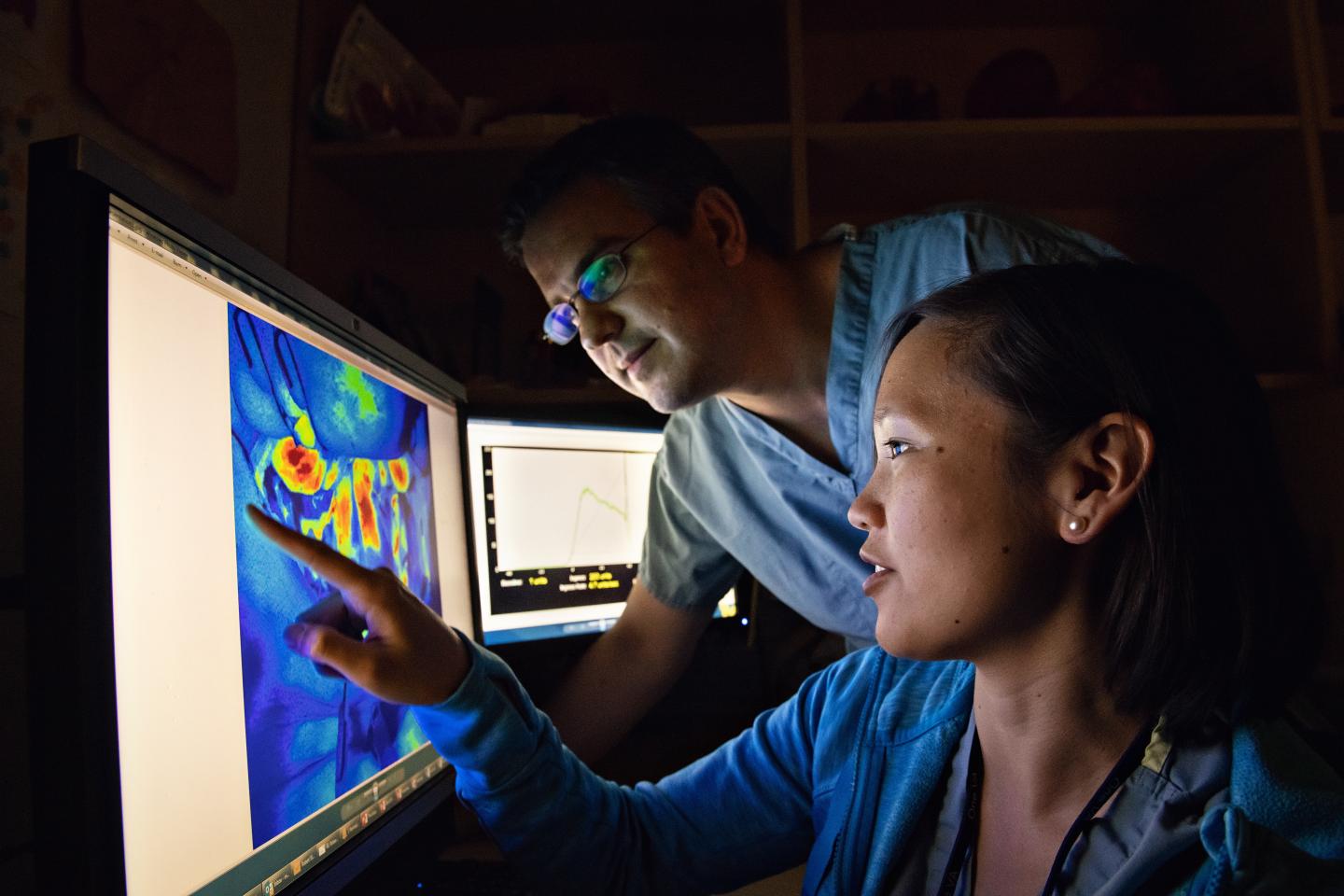When the surgical wound doesn’t heal right, it can send some patients back to the OR; a new technique tested at U-M could help identify which patients are at highest risk

Credit: University of Michigan Rogel Cancer Center
ANN ARBOR, Michigan – A technique that illuminates blood flow during surgery predicted which head and neck cancer patients were likely to have issues with wound healing. It could enable surgeons to make adjustments during surgery or recovery to improve outcomes.
A team of surgeons at the University of Michigan Rogel Cancer Center found the approach so successful in a clinical trial that they closed the study early.
Most people with larynx cancer will have radiation and chemotherapy. But about one-third of the time, the cancer will return or will prove resistant, leaving surgery as the next option.
At this point, tissue damage from the radiation adds challenges to the operation. When the surgeon closes the wound, damaged tissue can interfere. For about 40% of patients, this will lead to a pharyngocutaneous fistula, a hole in the neck where saliva can leak out. It can cause bleeding or infections, keeping patients in the hospital longer, and in 10% of cases sending them back to the operating room to fix it.
“Radiation damage is something you can’t always see. There have been very few examples in the literature that would explain or predict who’s going to have a complication,” says Matthew E. Spector, M.D., assistant professor of otolaryngology-head and neck surgery at Michigan Medicine. Spector is the senior author on a paper made available online in February ahead of final print publication in May in Annals of Surgical Oncology.
Researchers enrolled 41 patients who were undergoing laryngectomy after radiation. After removing the tumor but before closing the throat, anesthesiologists gave the patients an intravenous injection of a type of medical dye, indocyanine green. The dye circulates within about 40 seconds. Surgeons then use laser angiography, which illuminates the dye, allowing them to observe blood flow.
The results were clear-cut: patients with lower blood flow had a significantly higher risk of developing a fistula, whereas patients with high blood flow had a very low risk of wound complications.
Knowing this, Spector suggests a few possible interventions. One could be cutting out a wider margin of tissue to get a cleaner, healthier edge. Another possibility is to keep high-risk patients in the hospital longer, while sending the low-risk patients home more quickly.
The laser angiography approach would be straightforward to implement in many setting. It’s already used by other surgeons, including in breast reconstruction, so many hospitals already own the equipment. The technique has little impact on patients because it can be administered so quickly while they are still under anesthesia. Reactions to the indocyanine are minimal.
Researchers are developing a randomized clinical trial to assess whether cutting back more tissue leads to fewer fistulas in the high-risk group.
“We need to find an intervention that can lower this risk,” Spector says.
###
Resources:
University of Michigan Rogel Cancer Center, http://www.
Michigan Health Lab, http://www.
Michigan Medicine Cancer AnswerLine, 800-865-1125
Media Contact
Nicole Fawcett
[email protected]
Original Source
http://michmed.
Related Journal Article
http://dx.




